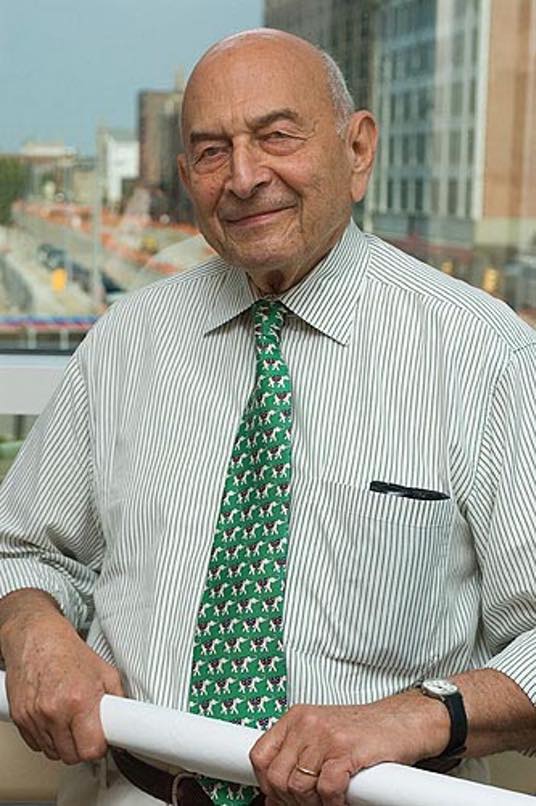
When Carl Stokes was elected mayor in 1967, one of the most important positions he had to fill was that of the city planning director. Stokes was careful in his selection and after a diligent search, he tapped Norman Krumholz, who at the time was the assistant director of the Pittsburgh City Planning Commission.
An independent thinker, Krumholz, who recently died at age 92, didn’t allow himself to be co-opted by wealthy developers and corporate business interests. He was a leading proponent of “equity planning,” which simply meant that governmental attention and actions should be focused more fully on the have-nots of society. He took a dim view of public-private partnerships that spread the risk of such projects as Tower City, the Rock Hall, and our glittering sports venues among average citizens as well as poor people, but in the end only benefited the few wealthy investors. He found many allies in Cleveland’s minority community.
After a decade at City Hall, where he served under three mayors (Stokes, Perk, and Kucinich), he became a professor of urban studies at Cleveland State. Mayor Jane Campbell had formed a Reentry Committee in 2004, and Norm, and I, along with about 30 other people, was invited serve on it. It was then that I first made his acquaintance and my real education on the myriad issues facing the urban poor around land use and housing began in earnest.
Always very generous with his time and knowledge, his 1990 book, Making Equity Planning Work, became an instant classic and is still used in urban studies programs around the country. Two years ago a follow-up volume, Advancing Equity Planning Now, was published by Cornell University and it too became an instant classic.
Norm firmly believed that his students should hear from a variety of community members. and after he saw that I was serious in regard to learning about urban planning, he invited me to lecture his advanced urban studies class each year. I was very grateful for the chance to share my opinions with young people who were preparing to enter the field and the experience gave me the opportunity to sharpen my public-speaking skills.
However, Norm and I didn’t agree on everything: He, like many other professors at Cleveland State, didn’t think that the building of upscale new homes in Hough was an idea that was going to take off. He believed that upwardly mobile blacks wanted to move to the eastern suburbs and exurbs, and for the most part, he was right. But there still were enough blacks — and a few whites — who wanted suburban-type homes right near the heart of the city, enough indeed to make the community I reside in work.
After seeing that there was a large enough cohort of people seeking to rebuild the black middle-class right in the shadow of downtown, he became one of the strongest advocates for what we are attempting to do. This should surprise no one since advocating for equity and parity for everyone was what his entire life was dedicated to.
Norm Krumholz was a true champion; he fought the good fight and he won; he won by moving society in the direction of creating equity for those most in need.

One Response to “MANSFIELD: The Death of a Giant”
roldo bartimole
Mansfield: Good tribute to a good man.He had a long, successful run. Thanks, Roldo